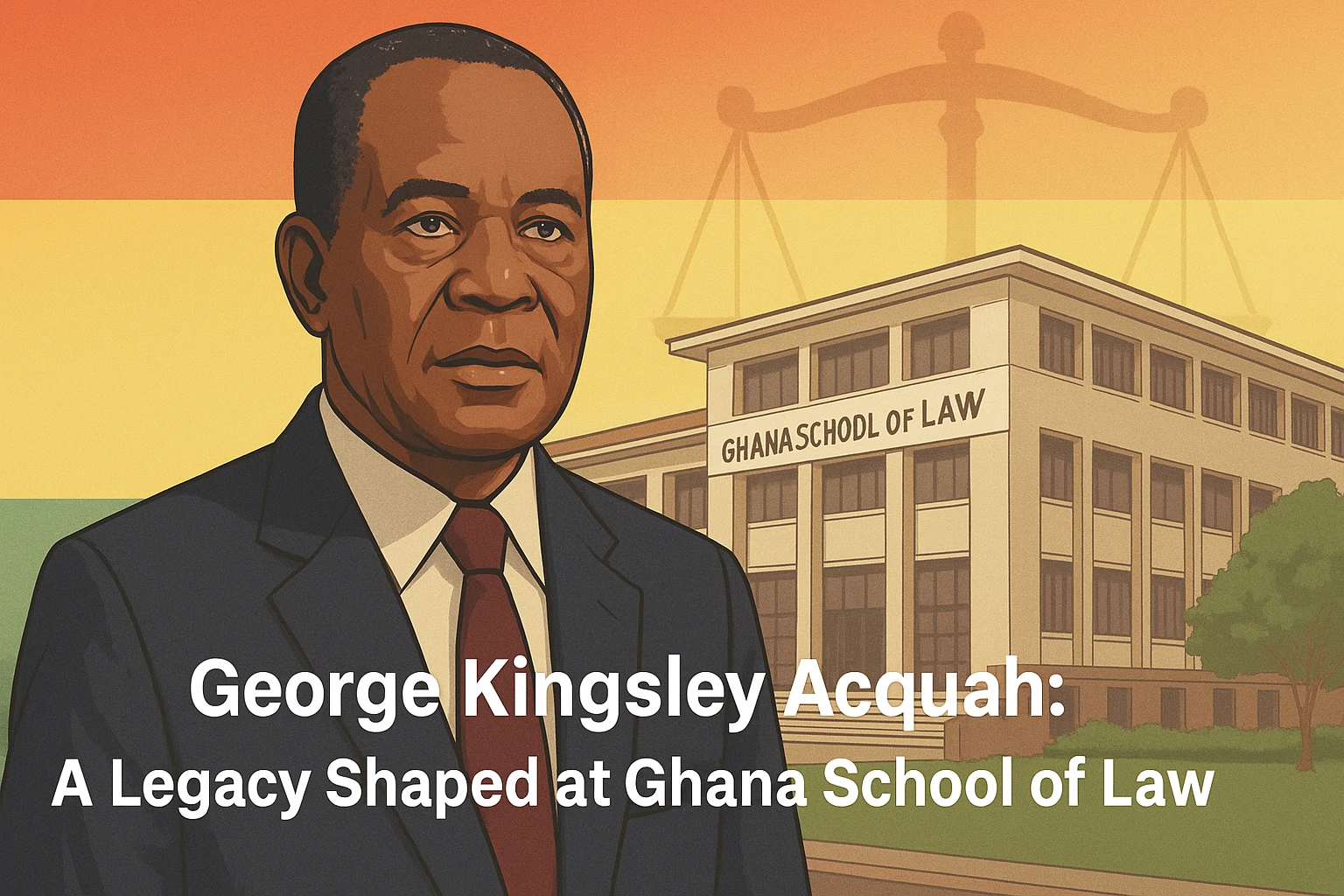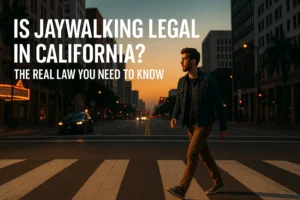George Kingsley Acquah earned his place in Ghana’s legal history. His name carries weight in courts, law schools, and across the country. He rose from simple roots to serve as Chief Justice. His life stands as proof that hard work and good values lead to great service.
He came from Sekondi. He did not come from wealth or influence. He worked his way through school, studied with focus, and gained respect. He passed through the Ghana School of Law. That place gave him the tools to build a strong legal career.
He later became more than just a lawyer. He became a judge, a reformer, and a national leader. He stayed true to fairness, order, and justice. His connection to the Ghana School of Law did not end after graduation. He kept helping students long after he reached the top.
This article shares his journey. It shows how one man shaped a system. It shows how a good school can build good leaders. It shows what future lawyers can learn from his example.
Early Life and Education
George Acquah was born in 1942 in Sekondi, in Ghana’s Western Region. He attended several basic schools. He stayed focused even when life moved him from place to place. He later joined Adisadel College in Cape Coast. There, he grew as a student and found his path.
He earned a degree in philosophy from the University of Ghana. That course shaped how he thought, spoke, and solved problems. He then returned to study law. After his law degree, he entered the Ghana School of Law. That step opened the door to his future.
At the law school, he trained under some of the best minds in Ghana. He learned courtroom skills, case analysis, and ethics. He studied hard. He passed the Bar and stepped into legal practice ready to serve.
Life in Legal Practice
He began private practice in Cape Coast. He took civil and criminal cases. He treated each one with care. Clients trusted him. His words were calm, clear, and honest. He never made empty promises.
He believed in service. He read every file with full attention. He met deadlines. He helped people understand their rights. His office stayed open to all. He earned a name not through wealth but through results.
He saw problems in the system. Some courts moved too slow. Some people feared the law. He knew he could help more as a judge. His performance in court brought him to the attention of top legal minds. He was appointed to the bench.
Judicial Journey
George Acquah became a High Court judge in 1989. He served in towns like Ho and Denu. His courtroom stayed firm but fair. He allowed both sides to speak. He ruled with reason. He used clear words so all could understand.
He moved to the Court of Appeal after some years. There, he handled bigger cases. He kept the same calm voice and strong values. His judgments were well-written and respected.
In 1995, he reached the Supreme Court. He became one of the top legal voices in Ghana. He never changed his tone. He stayed focused on justice, not status. He listened with care. He ruled with logic. His peers trusted him. His name grew stronger each year.
Chief Justice Role
He became Chief Justice in 2003. The system needed help. Many courts lacked good tools. Some judges faced pressure. Many citizens had lost trust.
He started with visits to the lower courts. He spoke with staff and saw the problems up close. He pushed for faster trials. He supported training for judges. He asked lawyers to follow clear ethics. He brought change step by step.
He supported alternative dispute resolution. He opened a commercial court to handle business cases. He cleaned up old systems and welcomed new ideas. His reforms touched every level of the judiciary.
He also returned to the Ghana School of Law. He served as an examiner. He mentored students. He made sure the next generation understood the job of a lawyer. He told them to stay honest. He told them to serve the public, not personal gain.
Ghana School of Law and Its Impact
The Ghana School of Law trains law graduates for practice. It offers more than theory. It teaches how to work in court. It shapes the way students speak, write, and think. Every lawyer in Ghana knows that road.
George Acquah walked that road. He carried the lessons with him all his life. Even as Chief Justice, he praised the school’s work. He showed that true learning does not stop after exams. It continues in every case, every courtroom, and every judgment.
Students at the school still study his rulings. They read his words. They learn from his way of thinking. His legacy shapes the way they see law, service, and truth.
Final Days and Lasting Influence
George Acquah died in 2007. He was sixty-five. His death shocked the country. Judges paused their work. Lawyers spoke of his kindness and strength. People remembered him as a man who gave his all.
His changes did not fade. The courts kept moving forward. His ethics stayed in the minds of those who worked with him. His students became judges, lawyers, and teachers. His work lives in every fair ruling and every honest courtroom.
He proved that legal power should never rest in fear or pride. It should rest in duty. He showed that a clear voice can lead others. He stood for fairness, access, and calm authority.
Conclusion
George Kingsley Acquah lived a life of service. He started in quiet schools and reached the top of Ghana’s legal world. He stayed grounded. He stayed simple. He stayed strong.
The Ghana School of Law helped him begin. He used that base to build a better justice system. He led with wisdom, not ego. He taught with action, not just words. His name will stay in Ghana’s legal story for years to come.
Future lawyers can follow his steps. They can read his rulings. They can carry his values. The law is not just about winning. It is about helping. It is about truth. It is about keeping the promise of justice for all.
Read more in The First Law Trilogy: Everything You Need To Know .
Common Questions
Q. What did George Kingsley Acquah achieve in his legal career?
He rose from a private lawyer to Chief Justice of Ghana. He led reforms that improved courts and restored trust in the legal system.
Q. How did the Ghana School of Law shape his journey?
It gave him the legal tools, ethics, and training he used throughout his career. He stayed connected to the school even after reaching the top.
Q. What made him different from others?
He stayed honest. He worked with care. He gave time to people and treated law as service, not power.
Q. What can young lawyers learn from his life?
They can learn to speak clearly, work hard, and serve others. His example shows that law is not about pride, it is about duty.




